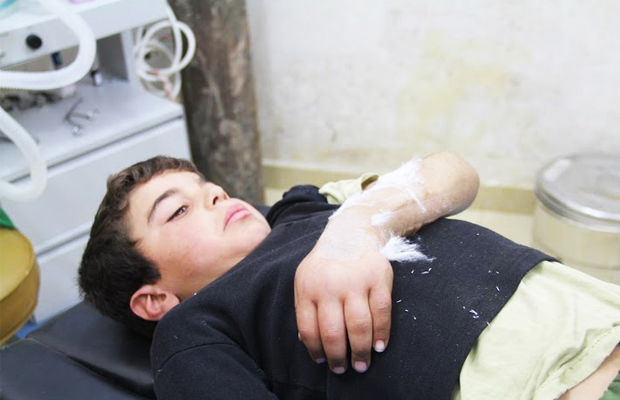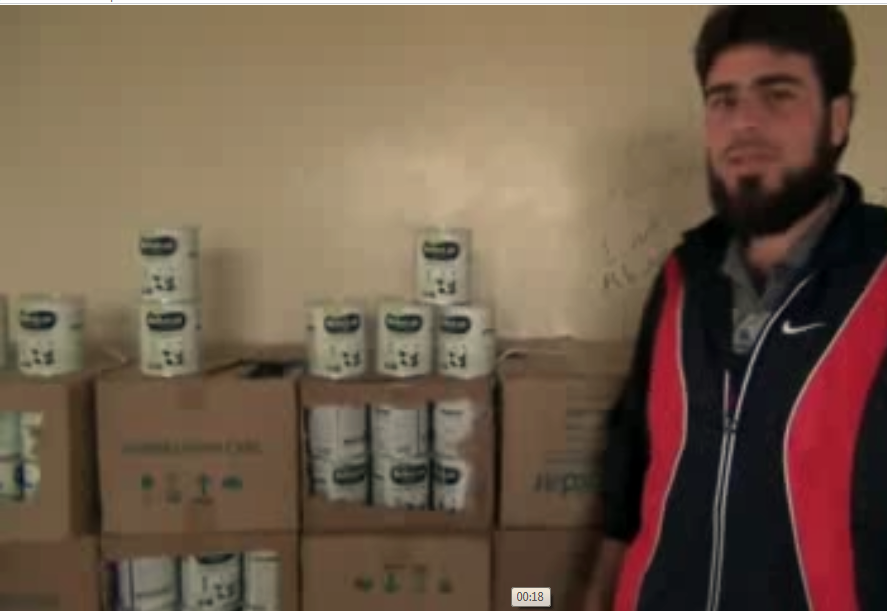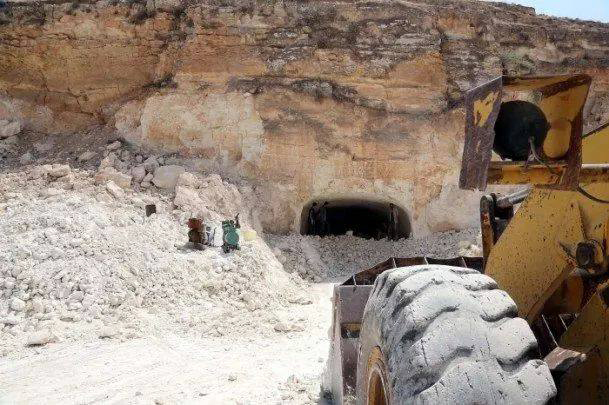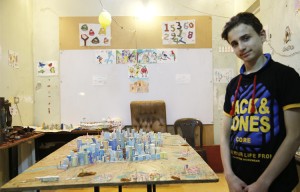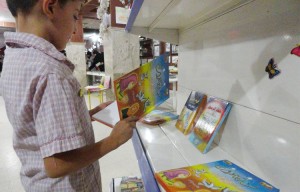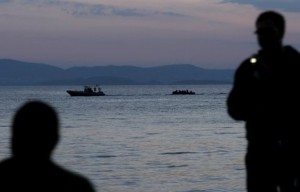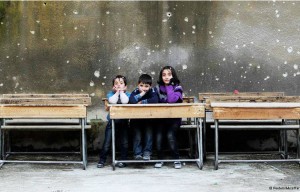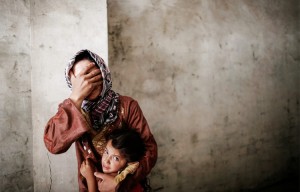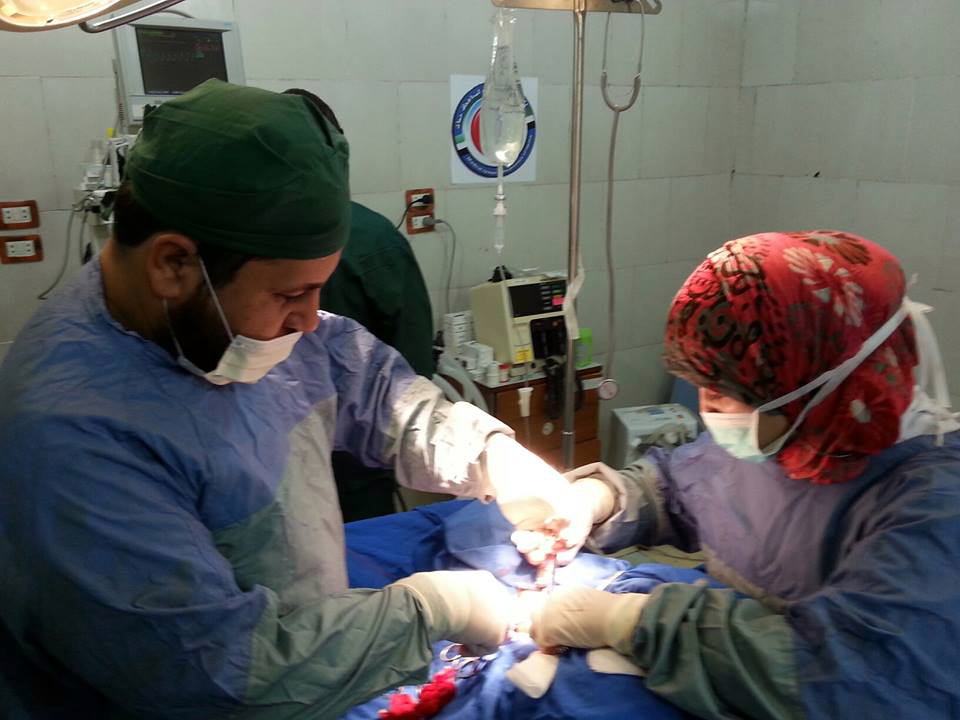
Medical work in Hama: Absence of Personnel and Waste of Resources

Enab Baladi Issue # 88 – Sun, Oct. 27, 2013
Medical work is considered one of the most important services in the revolution as it has been in direct contact with revolutionaries throughout the different stages of the revolution. Those who oversee this field have relentlessly tried to create a medical service that would compensate for the absence of an established (state) medical institution. In the province of Hama there is a marked difference – between the city and the rural areas – in the circumstances and nature of the medical work.
The (occupied) city
Medical activity in the city was always present, alongside each stage of the revolution since it began. It took successive forms according to each stage. At the beginning of the revolution it consisted of field hospitals with simple and few resources – closer to first aid points really, despite some being somewhat developed. The secretive nature of the work of these hospitals did not prevent them and their personnel from being targeted by the Assad regime, which hindered and prevented their success. It also led those who ran this work to train and equip first aid groups, which were then distributed in different parts of the city. These groups were successful in challenging the security situation imposed on the city; however they continued to suffer from a dire lack in some specialist areas and particularly specialist doctors.
The liberated rural areas
The rural areas witnessed good medical activity in comparison to the city as there was more stability there. Several medical bodies affiliated to the revolution set up hospitals, medical points and systems, which complemented one another and carried a heavy material and psychological burden off the shoulders of the communities.
Abu Nawaf, a doctor in the medical system of Hama said: “One of the biggest problems the liberated rural areas face is the absence of medical personnel (doctors, nurses, technicians). The city also suffers from this problem but to a greater extent. The terrible circumstances of the revolution and the reality of the long war forced many doctors to emigrate in search of a future”. He adds, “One of the deep problems that face the medical sector of the revolution, and which must be mentioned, is the wastage of resources and potential, as a result of the existence of many medical bodies which rarely co-ordinate with one another. The main reason for this is the absence of an institution-based role by the Coalition and the local councils which many depend on to set up a unified medical map – to be used as a basis for realistically assessing and the meeting the needs of medical work.
International medical organisations and bodies have played a big role in enhancing the medical sector by providing material and logistical support, as well as medical personnel in some cases. International medical support also contributed effectively towards the improvement of medical services. The support of these bodies consisted of supplying essential medical equipment, ambulance vehicles and even rehabilitation places for the injured. Most of these organisations were either Syrian doctors outside Syria groups or international humanitarian organisations of a medical nature.
Dr. Abu Nawaf ends by saying: “I hope that in the near future there will be a unified map of medical work for the province which is a basis for organised work of an institutional nature so that we raise the standard of our work and become a medical institution able to serve the province without having to refer and come back to other parties”.
Translated by: Tasneem Al-zeer
اذا كنت تعتقد/تعتقدين أن المقال يحوي معلومات خاطئة أو لديك تفاصيل إضافية أرسل/أرسلي تصحيحًا
إذا كنت تعتقد/تعتقدين أن المقال ينتهك أيًا من المبادئ الأخلاقية أو المعايير المهنية قدم/قدمي شكوى
-
تابعنا على :




